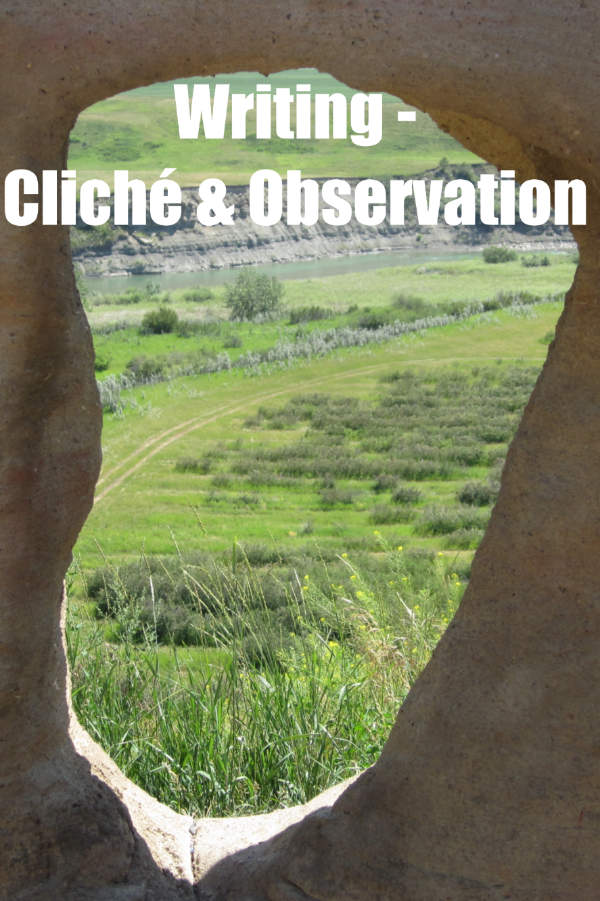A cliché is described as “a phrase or opinion that is overused and betrays a lack of original thought.” Clichés are useful in that they convey emotion and character that is instantly recognizable. But because they are so overused and recognizable, they lose nuance and become boring. Writers are advised to avoid them.
There is another version of cliché which can creep into writing. Clichéd human reactions and feelings. Watching the clock when anxious or impatient. Having your stomach turn when you dread what you might find around the corner. Throwing up when confronted with something horrific.
At Thin Air 2017 Winnipeg International Writers Festival, I attended a workshop given by Suzette Mayr. There were about fifteen of us in the workshop. She asked us to identify actions of people who are bored, irritable, claustrophobic or restless. Our list included tapping fingers, rolling eyes, pacing, sweating, watching the clock or a cell phone, and running hands through hair. We then sat for five minutes in silence, observing each other. When there is more time in a workshop, Suzette sometimes stretches those five minutes to fifteen.
After the five minutes, we shared what we’d observed. Sideways glances with eyes moving side to side but no head movement. Chair swivelling. Doodling. Adjusting glasses. When I swallowed, my Adam’s Apple felt enormous and I thought everyone could hear me swallow. Nothing we’d observed matched our brainstormed list.
Granted this was a contrived situation, but it illustrates a point. Are our stereotypical expectations of how someone might react in a given situation valid? Writers need to go beyond clichés and bring characters to life in a vivid and real way. Even when the standard expected actions apply, is there a unique detail that can describe it in a fresh new way? The workshop has inspired me to review every scene in works in progress and re-assess the actions I’ve given the characters and how I’ve described them.
How do we get past clichéd reactions? Largely by observing and paying attention to detail, I think. Watching people and being more aware of our reactions and feelings. Often one or two unique details are all that is needed to make the reader connect with the actions and emotions in the story. Identifying and describing those one or two details may not be straightforward or easy.


Thanks for sharing the writing exercise you did writers festival.